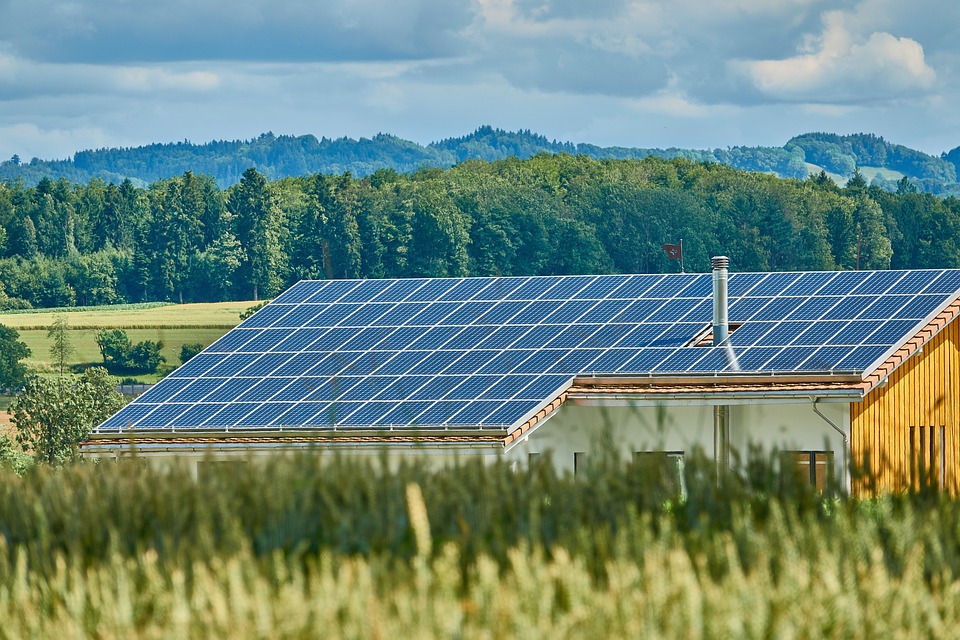Smart Grids and Energy Efficiency: The Role of Power Engineering in a Sustainable Future
The Need for Energy Efficiency
The world is facing an unprecedented energy crisis. With the global population projected to reach 9.7 billion by 2050, the demand for energy is expected to increase by 40%. At the same time, concerns about climate change, pollution, and resource depletion are driving the need for a more sustainable energy future. Energy efficiency is a crucial component of this future, and power engineering plays a vital role in achieving it.
What are Smart Grids?
Smart grids are advanced electrical grids that use information and communication technologies (ICT) to manage energy distribution and consumption more efficiently. They incorporate advanced technologies such as smart meters, sensors, and automation systems to monitor and control the flow of electricity in real-time. Smart grids can optimize energy distribution, reduce energy losses, and improve the overall reliability and resilience of the grid.
Benefits of Smart Grids
The benefits of smart grids are numerous:
*
Increased Efficiency
Smart grids can reduce energy losses by up to 30% by optimizing the flow of electricity and eliminating unnecessary transmission and distribution losses.
*
Improved Reliability
Smart grids can detect and respond to faults and outages more quickly, reducing the impact of power disruptions on consumers.
*
Enhanced Customer Experience
Smart grids provide consumers with real-time information about their energy usage and consumption, enabling them to make more informed decisions about their energy usage.
*
Increased Renewable Energy Integration
Smart grids can accommodate a higher proportion of renewable energy sources, such as solar and wind power, by optimizing the flow of energy and balancing supply and demand.
The Role of Power Engineering in Smart Grids
Power engineering plays a critical role in the development and implementation of smart grids. Power engineers are responsible for designing, building, and maintaining the electrical infrastructure that supports smart grids. They use their expertise in electrical power systems, transmission and distribution, and energy management to optimize the performance of smart grids.
Key Challenges in Smart Grid Implementation
Despite the benefits of smart grids, there are several challenges that must be addressed:
*
Interoperability
Smart grids require the integration of multiple technologies and systems, which can be a significant challenge.
*
Security
Smart grids are vulnerable to cyber attacks, which can compromise the security and integrity of the grid.
*
Cost
Smart grid implementations can be expensive, and the cost must be balanced against the benefits.
*
Regulatory Framework
Smart grids require a regulatory framework that supports the development and implementation of smart grid technologies.
Energy Efficiency in Power Engineering
Energy efficiency is a critical component of power engineering. Power engineers use their expertise to design and optimize energy systems that minimize energy waste and maximize energy efficiency.
Technologies for Energy Efficiency
Some of the technologies used to improve energy efficiency in power engineering include:
*
High-Efficiency Motors
High-efficiency motors can reduce energy losses by up to 30%.
*
Energy Storage Systems
Energy storage systems can optimize energy distribution and reduce energy waste.
*
Smart Grid Technologies
Smart grid technologies can optimize energy distribution and consumption, reducing energy losses and improving energy efficiency.
Conclusion
In conclusion, smart grids and energy efficiency are critical components of a sustainable energy future. Power engineering plays a vital role in the development and implementation of smart grids, and the challenges must be addressed through the development of interoperable, secure, and cost-effective solutions. Energy efficiency is a critical component of power engineering, and technologies such as high-efficiency motors, energy storage systems, and smart grid technologies can improve energy efficiency and reduce energy waste.
FAQs
What is a smart grid?
A smart grid is an advanced electrical grid that uses information and communication technologies (ICT) to manage energy distribution and consumption more efficiently.
What are the benefits of smart grids?
The benefits of smart grids include increased efficiency, improved reliability, enhanced customer experience, and increased renewable energy integration.
What is the role of power engineering in smart grids?
Power engineering plays a critical role in the development and implementation of smart grids. Power engineers design, build, and maintain the electrical infrastructure that supports smart grids.
What are the challenges in smart grid implementation?
The challenges in smart grid implementation include interoperability, security, cost, and regulatory framework.
How can energy efficiency be improved in power engineering?
Energy efficiency can be improved in power engineering through the use of high-efficiency motors, energy storage systems, and smart grid technologies.
What is the importance of energy efficiency in power engineering?
Energy efficiency is critical in power engineering because it can reduce energy waste, minimize energy losses, and improve the overall reliability and resilience of the grid.


_2.png?w=150&resize=150,150&ssl=1)
_1.png?w=150&resize=150,150&ssl=1)

_1.png?w=150&resize=150,150&ssl=1)
_1.png?w=150&resize=150,150&ssl=1)
